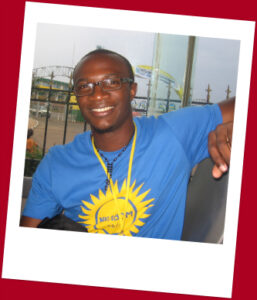Correspondence: Of blades of grass, arrows and clay
March 27th, 2011As the Italian educator Maria Montessori once said, the role of education is to “free the child’s potential” and by so doing “transform him into the world”, writes 23-year-old youth activist Craig Dixon from Jamaica.
 Slender blades of grass sway at the behest of the wind. If the wind blows from the west, their heads bow eastwardly. When the wind ceases, they stand still.
Slender blades of grass sway at the behest of the wind. If the wind blows from the west, their heads bow eastwardly. When the wind ceases, they stand still.
It is quite fascinating that our children, while very young, are like blades of grass and that we adults are like the masterful wind, capable of steering them whichever way we choose.
Yet we look beyond this truism or fail to see it altogether. In our actions, we deny our children their best ‘selves’, the dreams they ‘could have’ realized, the places they ‘could have’ been.
In the famous quip we say ‘our children are our future’. This means that ‘our future’ begins at ‘birth’. From this viewpoint, our future is literally in our own hands, waiting to be molded like clammy clay. From birth to eight years-old, children are as absorbent to learning as sponges are to liquid.
It is unwise that we often wait until the clay hardens to proceed to mold. But even as we mold, we should allow the clay to take its own shape, size and colour. Our role, according to late Italian educator Maria Montessori, famous for the Montessori Method, is to “free the child’s potential” and by so doing, we “will transform him into the world”.
The wind may dictate which cardinal direction blades of grass blow toward. But the landmass they cover and the heights that they reach are theirs’ to choose. Education is only ‘truly’ useful to the world as an instrument of freedom and individuality – for enlightenment and the attainment of intellectual and technical nirvana. Forms of innovation and seminal breakthroughs can only emerge from such wellsprings of distinctiveness.
If we put in place that which will give our children the self-assurance to ‘think big’ and dream freely, they quite simply will – their wares molded from clay and baskets weaved from straw will let fly an arrow to the bullseye of human imagination.
Our role is not to divide them with creeds and cynicism, but just to guide them. They are ideators by nature, whose first lessons must be in dreamright pedagogy – the right-to-dream, to become whatsoever they desire, regardless of where they sleep. They deserve their freedom, they belong to the universe.
Those truly committed to early childhood education, or any form of education for that matter, see it as a liberating praxis. The stuff of anthropology and existentialism – they see it as imaginative rather than incultatory – for liberation rather than domestication – as dank clay rather than hardened clay.
From The Prophet by Kahlil Gibran:
Your children are not your children.
They are the sons and daughters of Life’s longing for itself.
They come through you but not from you,
And though they are with you, yet they belong not to you.
You may give them your love but not your thoughts.
For they have their own thoughts.
You may house their bodies but not their souls,
For their souls dwell in the house of tomorrow, which you cannot visit, not even in your dreams.
You may strive to be like them, but seek not to make them like you.
For life goes not backward nor tarries with yesterday.
You are the bows from which your children as living arrows are sent forth.
The archer sees the mark upon the path of the infinite, and He bends you with His might that His arrows may go swift and far.
Let your bending in the archer’s hand be for gladness;
For even as he loves the arrow that flies, so He loves also the bow that is stable.
……………………………………………………………………………………………………………………..
Note: The opinions expressed in this article are those of the author and do not necessarily represent the views of the Commonwealth Youth Programme. All articles are published in a spirit of improving dialogue, respect and understanding. If you disagree, why not submit a response?



